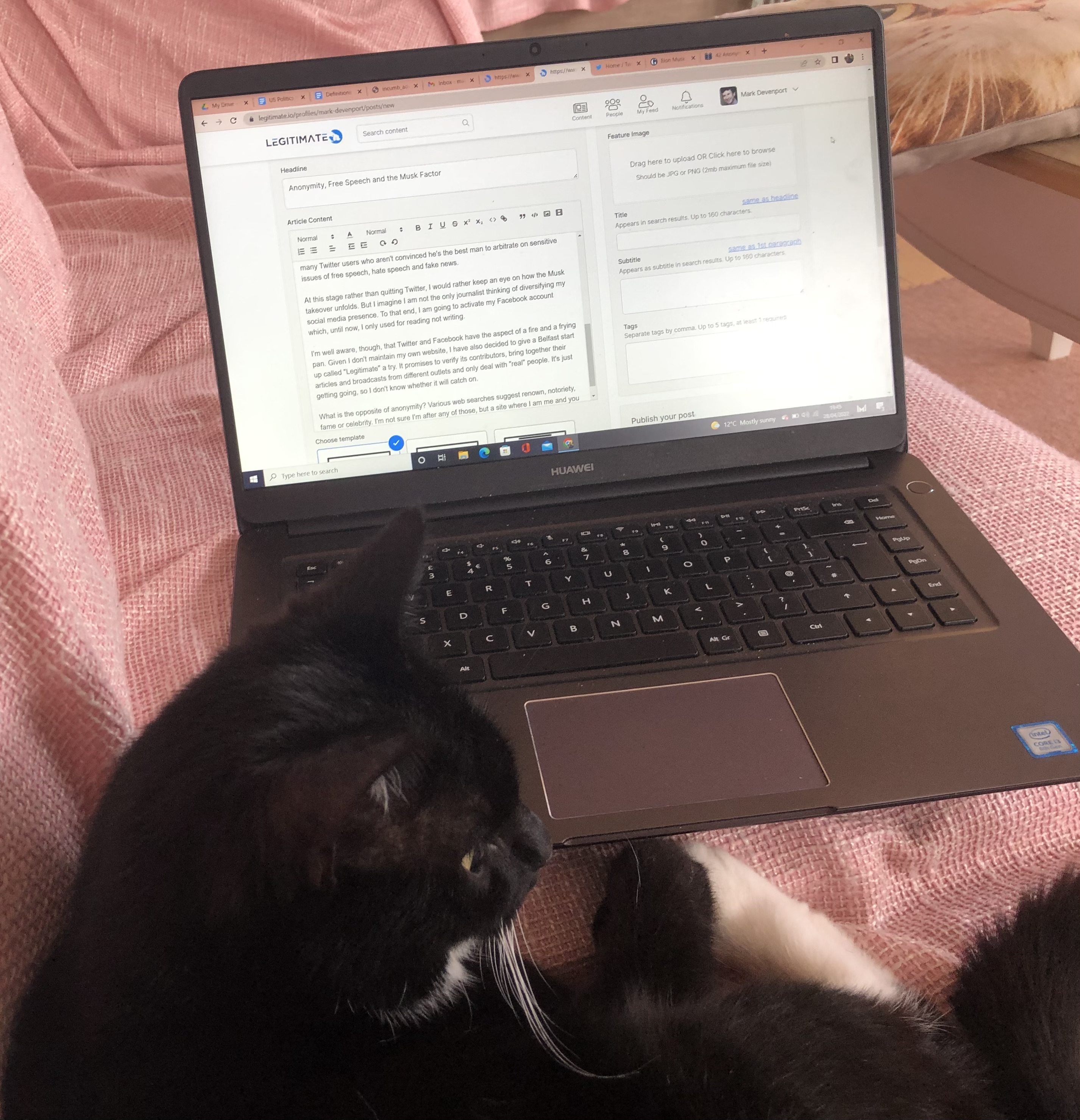

Anonymity, Free Speech and the Musk Factor
With wars raging in Ukraine, Yemen, Tigray and many other places, people around the world risk repression, torture or death if they dare to speak the truth. So you can see why many have a valid reason to shield their identity when they record their unvarnished view of the terrible events unfolding around them.
Even in peaceful democratic societies, some social media contributors, such as survivors of domestic violence or public servants blowing the whistle on malpractice, have an unimpeachable motive to resort to a pseudonym.
However it's clear that a malign minority avail of anonymity not to comment constructively, but purely to engage in the kind of unpleasant abuse they wouldn't attempt if the conversation was taking place in person.
In a world where these different realities and contrasting motives co-exist, I am not sure there is any perfect answer. The UK government, in its Online Safety Bill, is planning to require major social media companies to offer users a method to verify themselves and an opt in/opt out button to indicate whether they want to interact only with other verified accounts. https://www.gov.uk/government/news/new-plans-to-protect-people-from-anonymous-trolls-online
So in the future there could be distinct platforms, or sections of platforms, some of which allow their users to hide their names and others which insist on the real you.
After buying Twitter for $44 million, Elon Musk promised to authenticate all human beings. Let's see how he gets on in his battle against the Twitterbots.
But some Twitter users are clearly unnerved by Musk's out spoken track record, less than convinced the billionaire is the one to be trusted with handling the sensitivities involved in policing free speech, hate speech and fake news.
I am content to stick with Twitter whilst I watch how the Musk takeover unfolds. However I suspect I am not the only journalist considering diversifying my social media presence just in case Twitter lurches in an unwelcome direction. To that end, I am planning to activate a Facebook account which I previously used only for reading, not writing,
However jumping between Twitter and Facebook feels a bit like alternating between the frying pan and the fire. So I am also going to give a Belfast based start up called "Legitimate" a try - it's a site which promises to verify all its contributors and bring together journalists' articles and programmes on a single profile page. It's early days for the site, but let's see if it catches on. https://www.legitimate.io/profiles/mark-devenport
What's the opposite of anonymity? The web suggests renown, fame, notoriety or celebrity. I am not after any of those but a platform where I am definitely me and you are indisputably you sounds quite appealing.
And my cat, who tried to interrupt me whilst I was typing this? She is definitely called "Imp" and doesn't answer to anything else. That, at least, I can verify.
Tags: